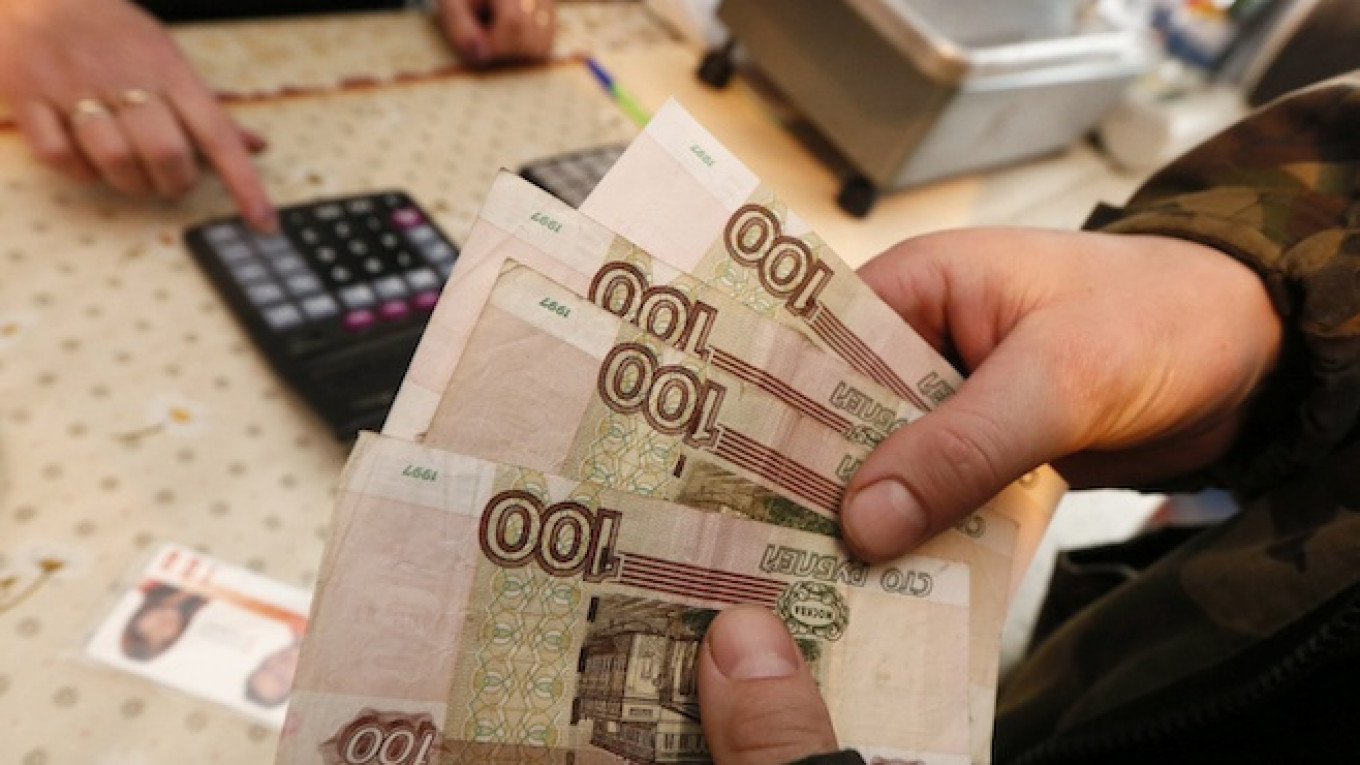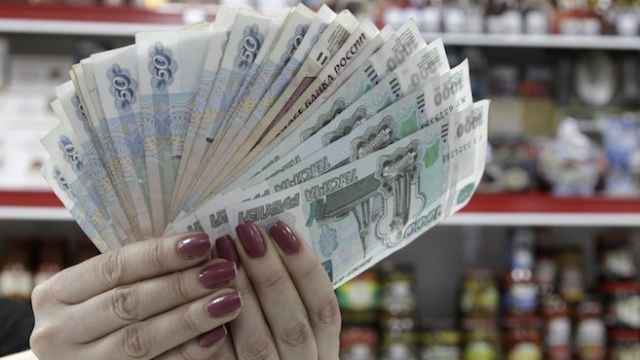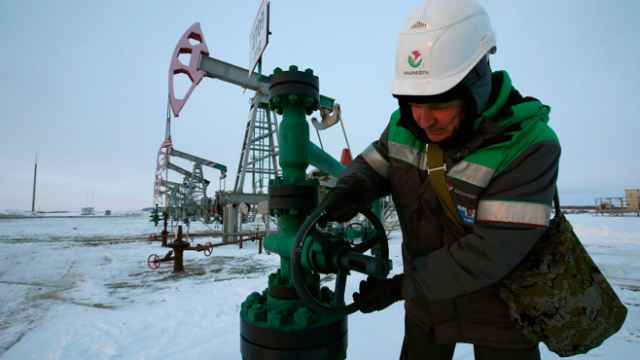Russia's ruble slid in early trade on Thursday, extending losses from earlier in the week as falling oil prices and the threat of new European Union sanctions over the Ukraine crisis soured sentiment.
At 0735 GMT, the ruble was around 0.8 percent weaker against the dollar at 68.58 and 0.6 percent lower at 77.38 against the euro.
Stocks were mixed, with the dollar-based RTS index down 1 percent to 758 points and the ruble-denominated MICEX up 0.1 percent to 1,648 points, mainly reflecting the ruble's weakening.
European Union foreign ministers were on Thursday expected to extend until the end of 2015 asset freezes and travel bans imposed on dozens of Russians and Russian firms following Moscow's annexation of Crimea. New punitive measures were also expected.
"Based on the latest reports, new economic sanctions will not be introduced, although there has been discussion over a ban on the supply of equipment for power stations and a ban on the purchase of government bonds of the Russian Federation," Stanislav Kleshchov, an analyst at VTB 24 bank, said in a note.
"If so, then the likely nervousness of market players during today's trading will manifest itself more in the foreign exchange market, rather than lead to a sell-off of Russian stocks."
The ruble has weakened around 6 percent this week, with its slide starting after the Standard & Poor's rating agency cut Russia's sovereign credit rating late on Monday to below investment grade for the first time in a decade.
Oil, one of Russia's main exports, has also put pressure on the ruble, with Brent crude futures trading near six-year lows at around $48.50 per barrel on Thursday.
A Message from The Moscow Times:
Dear readers,
We are facing unprecedented challenges. Russia's Prosecutor General's Office has designated The Moscow Times as an "undesirable" organization, criminalizing our work and putting our staff at risk of prosecution. This follows our earlier unjust labeling as a "foreign agent."
These actions are direct attempts to silence independent journalism in Russia. The authorities claim our work "discredits the decisions of the Russian leadership." We see things differently: we strive to provide accurate, unbiased reporting on Russia.
We, the journalists of The Moscow Times, refuse to be silenced. But to continue our work, we need your help.
Your support, no matter how small, makes a world of difference. If you can, please support us monthly starting from just $2. It's quick to set up, and every contribution makes a significant impact.
By supporting The Moscow Times, you're defending open, independent journalism in the face of repression. Thank you for standing with us.
Remind me later.






